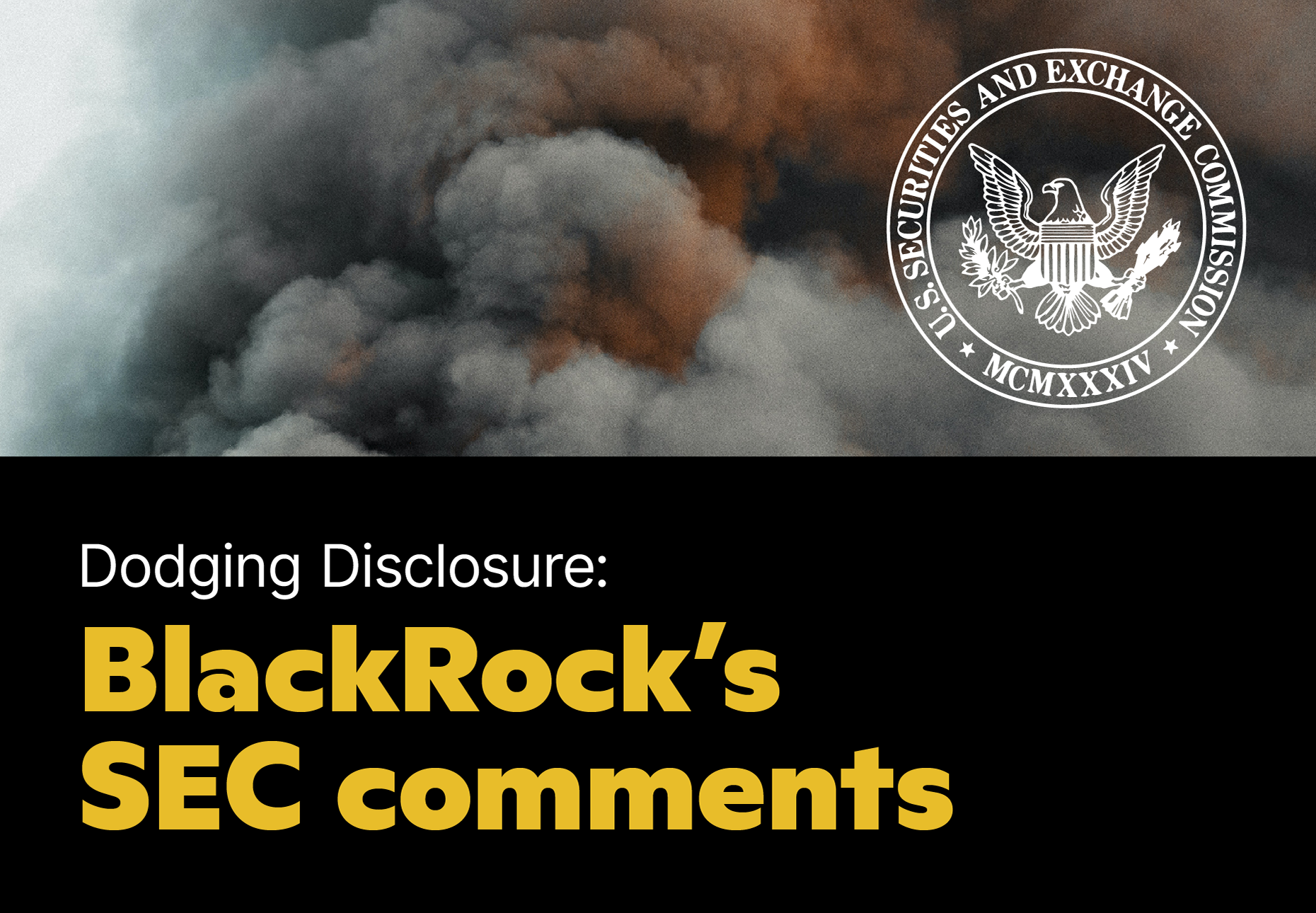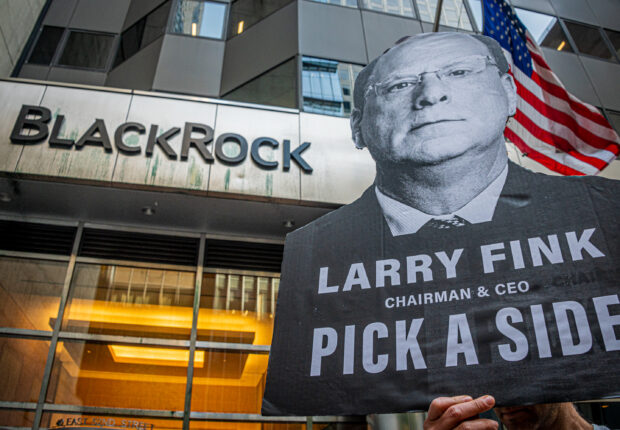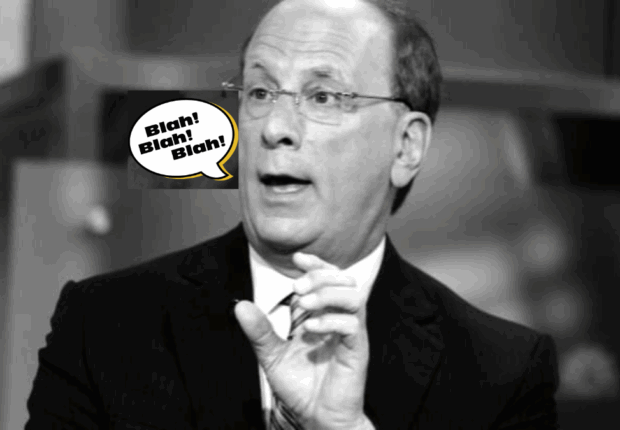Despite BlackRock’s position as a self-proclaimed ESG leader, the firm disappointingly submitted comments encouraging the SEC to implement weaker regulations.

Over the past few months, one of the main financial regulators in the US, the Securities and Exchange Commission (SEC), has proposed a series of rules to help investors better understand the risks climate change poses to their investments. ESG (environmental, social, and governance) investing has gained popularity in recent years, as investors feel compelled to protect their investments from climate-related risk and other systemic financial shocks.
The SEC recently collected public comments on two proposed rulings meant to help reduce greenwashing: the “ESG Disclosure” Proposal and an update to the “Fund Names” rule. If the final rules come out strong, investors will have easily comparable information about different funds, making it easier for them to assess how to protect their investments against climate risk.
Despite BlackRock’s position as a self-proclaimed ESG leader, the firm disappointingly submitted comments encouraging the SEC to implement weaker regulations. Not only would BlackRock’s proposed changes to the SEC prevent investors from accessing information necessary to evaluate the funds’ true climate impacts, they would also enable BlackRock and other asset managers to continue to obfuscate the actual carbon intensity of their own portfolio offerings.
BlackRock doesn’t want additional disclosure of stewardship activities.
BlackRock claims there is no need for fund-level stewardship disclosure because the asset manager broadly engages with each company listed in its funds. It further claims that funds identifying as ESG-focused would already need to undertake stewardship activities to be included as part of its ESG offerings. But avoiding specific disclosure creates loopholes that are just opportunities for continued greenwashing.
For many asset managers, engagement and proxy voting is the most effective way to impact ESG outcomes at companies in their portfolios. But some of the largest asset managers aren’t doing enough to engage with companies on ESG. BlackRock, in particular, is essentially greenwashing its ESG commitments as it supported only 24% of E&S shareholder proposals in 2022. Investors deserve to know whether their investments are being used to mitigate these risks on a fund-by-fund level in order to decide in which funds specifically they want to invest.
BlackRock doesn’t want to have to disclose its Scope 3 emissions.
In its previous comment to the SEC, BlackRock petitioned to significantly limit the Scope 3 disclosures required of publicly traded companies. Scope 3 emissions are emissions that are embedded either in a company’s supply chain (like the cost of refining materials for computers) or through the use of its products (like the exhaust from a gas-powered car). And, for most companies, Scope 3 emissions constitute the bulk of overall emissions. Especially for asset managers, for which Scope 3 emissions are the combined emissions of all the companies held in its portfolios.
In this round of comments, BlackRock petitioned the SEC to ease up on the climate disclosures required of financial institutions. Specifically, BlackRock doesn’t want to disclose the greenhouse gas emissions of particular funds until after portfolio companies are required to report their emissions and, even then, BlackRock only wants to tell its clients the bare minimum: whatever it is that portfolio companies are sharing publicly about their carbon footprint. In other words, BlackRock is trying to limit the amount of information it has to share with clients so that it can make its fund offerings look more climate-friendly.
All of this is not only deeply disappointing, but particularly ironic for a company that has not only purported to be an industry leader on climate change, but that touts having the largest ESG team in the world. For example, asset managers can easily measure the total emissions of its funds, even if companies aren’t directly disclosing that information, by using existing methodologies to make well-informed estimates about a company’s total emissions.
In short, this is a clear indication of BlackRock dragging its feet on accountability to its climate ambition. It is a concerted effort to keep BlackRock’s own Scope 3 emissions out of the public eye. And it seems that, despite its rhetoric on climate change, BlackRock is actively lobbying to tamp down crucial information that investors need to make informed decisions on climate risk.
Looking for analysis on Vanguard’s SEC comments? Check out our read-out on the Vanguard S.O.S. campaign site.

